This piece is part of the Taiwan-U.S. Quarterly Analysis series, which features in-depth analysis of important issues in Taiwan and the U.S.-Taiwan relationship by leading experts, with the goal of providing a range of perspectives on developments relating to Taiwan.
The COVID-19 pandemic and Russia’s war in Ukraine have changed how the EU thinks about the future of its relations with China — with significant potential for shifts in policy towards Taiwan.
The latest (virtual) EU-China summit on April 1, in which European leaders wanted to focus on the war in Ukraine, was an astonishing demonstration of the current situation. There was no dialogue, and no new or constructive offers from Beijing were on the table. Each party presented their positions with limited resonance on the other side of the screen. Just weeks later, European allies also acknowledged that China’s “stated ambitions and coercive policies” posed a challenge to trans-Atlantic interests and security in NATO’s new Strategic Concept.
A new “crisis mode China”
Relations between Europe and China had been slowly deteriorating for years due to a variety of reasons, ranging from Beijing’s economic policies — including its market distorting practices, industrial policies, and the global investment push challenging European competitiveness — to President Xi Jinping’s authoritarian advance in Hong Kong and massive human rights violations in Xinjiang.
But previously, the Chinese leadership had either been neutral or even supportive whenever Europe faced a crisis: With Russia’s 2008 war against Georgia and the annexation of Crimea in 2014, Beijing stayed on the sidelines. During the global financial crisis in 2008 and the subsequent European sovereign debt crisis, Beijing acted as a stabilizer for international markets and even as a supporter of troubled European economies.
This was the version of “crisis mode China” that Europeans grew accustomed to. And thus, despite growing problems in the bilateral relationship, Beijing’s assertiveness at home and abroad during the pandemic — from zero-COVID to mask diplomacy — took Europeans by surprise.
This alone, however, would likely not have been enough to instigate a fundamental reassessment of China’s priorities. Despite the February 4 joint Sino-Russian declaration, in the early days of the war in Ukraine many EU member states assumed that Beijing would play a constructive role and would have every interest to do everything in its might to stop the bloodshed quickly. The idea that the Chinese leadership would place political over economic considerations still seemed alien to many European policymakers.
After the first few weeks of the war had passed and China showed no sign of changing its rhetoric, doubling down on the narrative that Russia was defending itself against NATO’s aggressive expansionism, and amplifying Moscow’s disinformation in the Global South, it became clear that China was not going to come to Europe’s assistance. It was also not going to stop Russian President Vladimir Putin’s aggression, or even stop propping up his regime. Beijing’s diplomatic support and significantly growing imports are strengthening Putin’s financial ability to continue his fight.
The pandemic and the war in Ukraine have put Taiwan on the map in Europe
The European Union is Taiwan’s largest foreign investor. More than 25% of the island’s foreign direct investments came from EU countries in 2020 and 15 of 27 EU member states have representative offices in Taipei. The volume of bilateral trade has risen to more than 68 billion dollars in 2021. While this is much less trade than with China, pandemic-induced supply chain disruptions, as well as global semiconductor shortages, have underscored the need for greater resilience and for like-minded, reliable partners.
Europe’s position on Taiwan has shifted during the pandemic. Taiwan’s COVID-19 response was not only remarkable in its effectiveness, but in its support for Europe, including the delivery of protective equipment. This starkly contrasted to Beijing’s divisive agenda, with its openly hostile rhetoric trying to underscore the inability of democratic governments to handle the pandemic.
The realization of Taiwan’s central role in semiconductor supplies, coupled with acknowledging the heightened geopolitical tensions and weaponization of trade, have made European governments care more about developments in the Taiwan Strait. Policymakers were starting to take China’s constant incursions into Taiwan’s Air Defense and Identification Zone and massive military build-up more seriously, even before Russia’s invasion of Ukraine.
The European Parliament’s October 2021 recommendation to the EU Commission’s High Representative for Foreign Affairs and Security Policy on relations with Taiwan demonstrates this: It stated not only that Taiwan and the EU are like-minded partners that share common values, but also lauded Taipei’s efforts during the pandemic as a “tangible example of Taiwan behaving as a partner, and proof that it should be treated as such.” Barely a month later, the first European Parliament delegation visited Taipei.
It was not only the parliament that was becoming more vocal. Commissioner Margrethe Vestager, who is at the forefront of managing the challenges that China’s market distorting practices pose to European industry, stated that China’s actions and increasingly aggressive behavior in the Taiwan Strait “may have a direct impact on European security and prosperity.”
One EU member state decided to take even bolder action. In November last year, Lithuania decided to open a representative office under the name of Taiwan (and not Taipei, the usual form used across Europe for Taiwan’s quasi-embassies). The result was a massive fallout between Vilnius and Beijing that not only led to a diplomatic relations freeze, but also the virtual halt of economic activity between the two countries. It quickly embroiled the entire EU as Beijing wielded the full force of its market against all those European (and U.S.) companies who have Lithuanian products in their supply chain or produce in the Baltic state for export to China.
EU member states were initially reluctant to support Lithuania, but Beijing’s attempt to coerce international companies into changing their supply chains was seen as an attack on the European single market. This elicited a strong response, which included speeding up the suggestion to member states to create an anti-coercion instrument to defend Europe against Beijing’s weaponization of trade relations. But while Taiwan pledged support to the Lithuanian economy, the damage to Lithuania as an investment destination was real. Early in 2022, domestic support in Lithuania for the government’s more forward-leaning and values-driven approach was coming under heavy scrutiny at home. Then Russia invaded Ukraine.
The bold move by Vilnius now looks much more strategic. Lithuania had long warned other EU members about Russia’s intentions and was clear that its position vis-à-vis China and Taiwan was coming from the same principled approach, even if it pushed other Europeans out of their comfort zone. The connection between Ukraine and what might happen in East Asia was even more immediately drawn — something Europe has often resisted entertaining as a real possibility in its policy planning.
What does this mean for EU-Taiwan relations?
Taiwan is not Ukraine. Europe’s reaction to any potential Taiwan contingency would depend on the circumstances. Unilateral action by Beijing to change the status quo and military aggression would draw a strong reaction: The arsenal of economic sanctions currently on display vis-à-vis Russia could be aimed at China, but Beijing would likely try to make the decision less clear-cut, potentially framing its own actions as a response to a provocation or accident.
The trend toward enhancing EU-Taiwan relations below the level of challenging the “One China” policy encourages Europeans to be engaged in case of conflict. This would increase the deterrent effect of any trans-Atlantic response and raise the cost for China to violently change the status quo.
The most active political player will likely remain the European Parliament. The parliament even suggested that the EU should consider “[changing] the name of the European Economic and Trade Office in Taiwan to ‘European Union Office in Taiwan’ in order to reflect the broad scope of ties.”
But the European Commission has also already enhanced its approach: After the invasion of Ukraine, the regular trade dialogue with Taipei was held in an upgraded form in early June 2022. Europe is keen for Taiwan’s help with its semiconductor crunch and wants to attract Taiwan’s leading companies to set up shop within the EU. Taiwan’s willingness to support the Western sanctions package vis-à-vis Russia has further boosted trust. An EU-Taiwan bilateral investment agreement, which Taiwan has proposed, still remains a more distant option.
Germany is the European country most dependent economically upon China. Putting Taiwan on the map in Berlin is the single most important factor to swing Europe’s position sustainably. Germany’s still relatively new Social Democrat-Green-Liberal government is currently devising its new China strategy, and its position vis-à-vis Taiwan will be one of the most interesting and hotly debated aspects.
Berlin is not likely to be as bold as Vilnius, but it too has changed its tone. For the first time, the German government’s coalition treaty is explicit about the need to maintain the status quo in the Taiwan Strait and support Taiwan’s participation in international organizations. A document of this kind would usually reference China only as a business opportunity and never even mention Taiwan. Germany could budge the needle and put political weight behind Europe’s enhanced engagement. For Taipei this means that beyond Washington and Brussels, Berlin needs to be the focus of diplomatic attention.

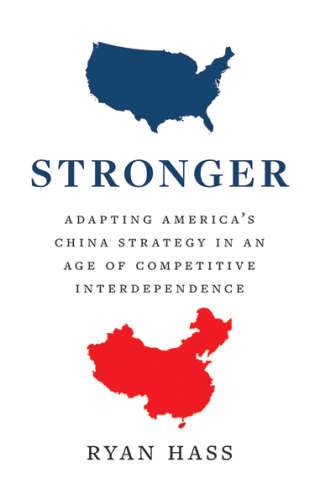
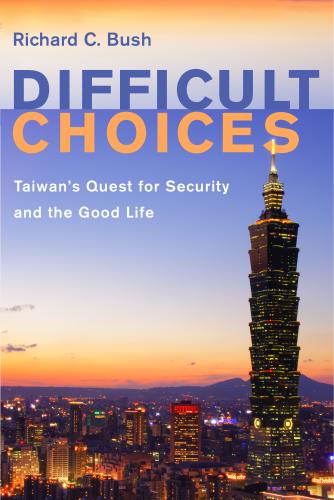
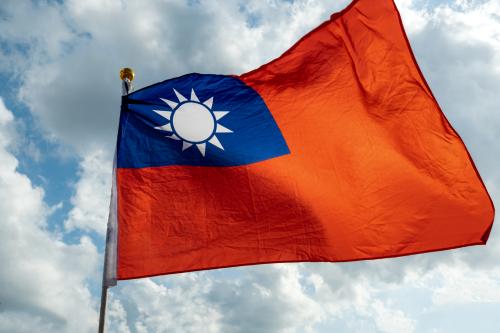
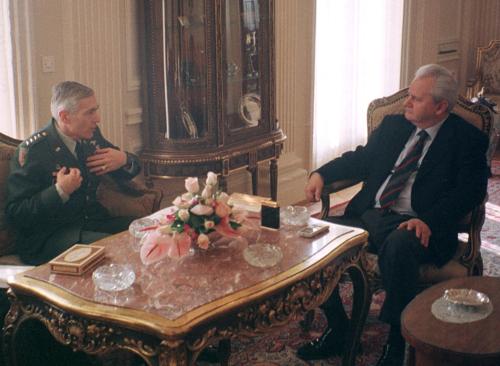
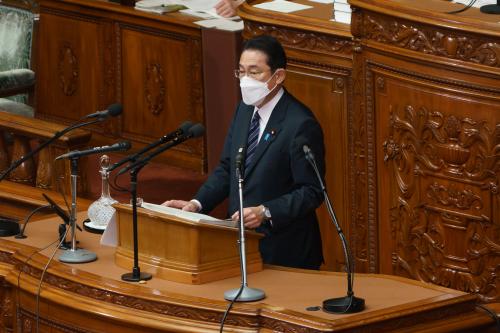



Commentary
How COVID-19 and the war in Ukraine could change EU-Taiwan relations
July 13, 2022